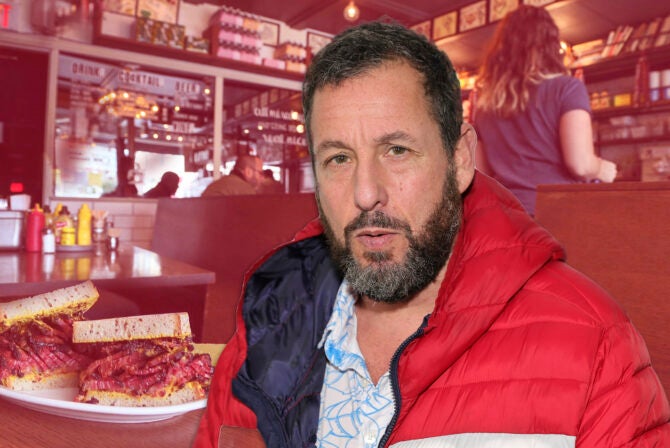Jews are rightly fascinated and compelled by the story of Anne Frank and others like her, shielded from the Nazis by the righteous among the nations who opened attics, basements even churches and zoos as hiding places, risking their own lives to save Jewish ones. Today, our questions about “what would we do” in such a situation are coming to a head, with President Trump vowing to step up a campaign of deportation and detainment against our neighbors who are more recent immigrants.
Many Jews are heeding the call: already, churches, synagogues and individuals are preparing to become sanctuaries for immigrants, which has a meaning that ranges from activism and legal guidance all the way up to housing and sheltering undocumented families under threat of deportation.
Some individuals and religious institutions are going even further, creating an “underground network” of hiding places. In an article about this movement, CNN interviewed an anonymous Jewish man who had created a hiding space in his apartment to house a family should the need arise. His thoughts, naturally, went to World War II and stepping up in a time of urgent need.
“It’s hard as a Jew,” the man told CNN, “not to think about both all the people who did open their doors and their homes and take risks to safeguard Jews in [a] moment when they were really vulnerable, as well as those who didn’t. We’d like to be the people who did.”
For many years now, American families have been torn apart by immigration laws—this is nothing new. But in recent weeks, thanks to more aggressive, “unshackled” behavior from Immigration and Customs Enforcement (ICE) officials, the fear that tiny misdemeanors will result in parents being removed from their children have grown. In fact, it’s already happening. Take this story from Atlanta:
“Victoria Gutierrez’ husband Fredy Del Valle-Alcocer was detained by US Immigration and Customs Enforcement, one day after they were married. The family said now they fear they will be torn apart from their mother as well….Then last week, around the same time immigration officials were raiding communities looking for undocumented immigrants, they noticed Fredy while he was crossing a Buford Highway.
The family has been unable to contact him since his arrest.”
Or take the New York Times‘ blockbuster story about Carlos, a man who was absolutely beloved by his Trump-supporting neighbors and now, detained, is in danger of deportation: “His wife, Elizabeth Hernandez, who attained United States citizenship late last year, according to Mr. Arana, said she was struggling to sleep, since her husband was detained,” the Times reports. In an interview with the Times, Elizabeth asked of her children, the youngest of whom is a 2-year-old: “what am I going to tell my three boys if he can’t stay here?”
As a mom of a young boy myself, my heart breaks for Elizabeth. The time has definitely come to ask ourselves hard questions. Jews have always been at the forefront of immigration activism because of the Torah’s directive to welcome the stranger. Yet some of us will, indeed some already have, disappointingly said that offering sanctuary is going too far. Some will say that Jews came here legally, which differentiates us from those facing deportation today.
But that’s not entirely true, because one of the most interesting things that has come up in the discussion about immigration and Jews is the fact that many Jews did come here illegally, whether jumping ship back in the turn of the century or sneaking in during the years before World War II when American doors were too often shut. As Elan Khan wrote in her JTA op-ed this week: “We are not better. We, too, were strangers. Illegal strangers.” She continues: “The story of seeking asylum, of being refugees and immigrants, of entering this country through both legal and illegal means, is a deeply American story and, as it turns out, an American Jewish story.”
To me, this issue isn’t about politics, but about families. If you can look a small child in the face and tell him or her that a harmless, hard-working parent should be removed from their home with no warning just because they’re missing certain papers, you are missing a part of your heart. Not everyone in the Jewish community can risk the same amount to help our neighbors, of course, but we should all be as involved as we can—and encourage our shuls and community groups to step up, as well. This is not the time to equivocate, but the time to step up and do what we wish more people had done for us. Take Rabbi Michael Alan Latz of Congeregation Shir Tivkvah as an inspiring example:
“Our Sanctuary Team, lead by a group of passionate congregants committed to bringing Torah values to life, are busy working to make our synagogue a welcoming home should people need to seek refuge within our walls. They are busy collecting bedding, dressers and other furnishings to make our space more comfortable. We solicited bids to build a shower. We have joined with hundreds of other synagogues, churches and mosques that make up the “Sanctuary Movement” to stand boldly and proudly with those who, like our ancestors, came to the shores of America seeking a new life.”







